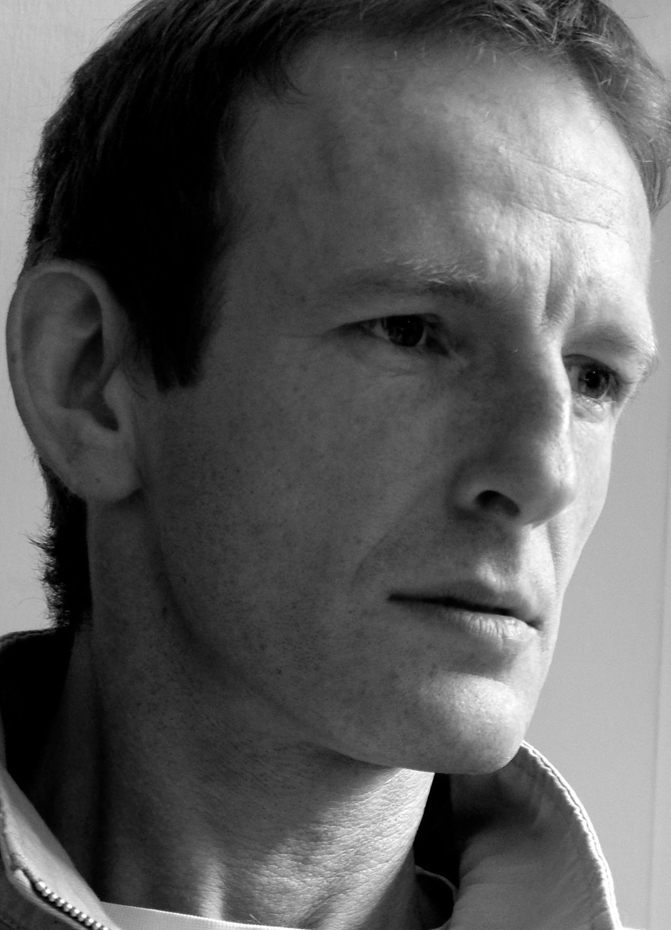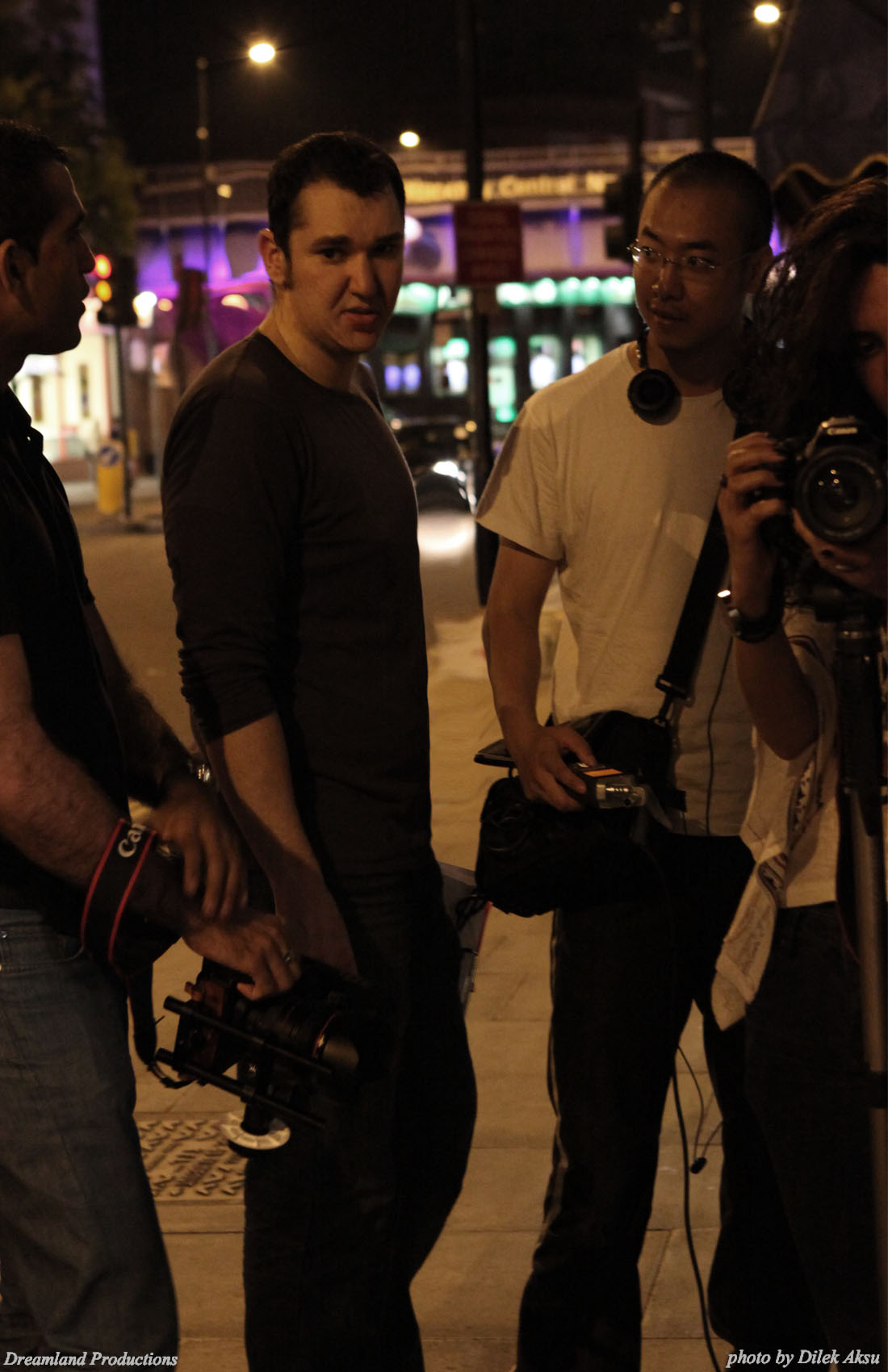ASK & DISCUSS
INDEXMicrobudget filmmaking; Ambition or Self-Deception?
12 years, 5 months ago - patrick astwood
As someone who reads Shooting People regularly, especially the Film Bulletin, it is quite fascinating how many people are trying to get no-to-low budget features films made. From pitching to a potential producers, to getting hold of that difficult location, or finding crew for that weekend shoot, everyone it seems is aiming for the stars.
And while I applaud this ambition with the scarcity of general funding for filmmakers, I wonder if the individuals who indulge in this passion, have a viable plan, or are they simply dreamers, fearing the worst but hoping for the best. My question is why do we bother to make low-budget films, when we know most independent films have a cat in Hell's chance of ever finding distribution.
Personally, I'm interested in learning as many perspectives as possible and discovering the motivation that drives filmmakers to take these risks, and what their objectives are, now and in the long term.
Only members can post or respond to topics. LOGIN
Not a member of SP? JOIN or FIND OUT MORE
12 years, 5 months ago - Jane Hamer
I'm not sure what you wanted to achieve by your post Patrick, but it's rather depressing and I'm so relieved by the positive posts that followed. I'm sure without a doubt there are lots of dreamers in the industry, but you could say that about every other profession. Every single person has dreams; whether it's obtaining a better house, car or in our case, to make a film; but the difference with that is those dreams are internal, ours external and we're on the front firing line. That means the people in this industry have the courage to put themselves out there and endure a brave face if they fail, and I admire that immensely.
Who doesn't want to aspire to great things and thank God for people like that, because if they didn't put themselves out there and give it a go we'd still be stuck in 70's before channel 4 appeared and suddenly all these amazing programs/writers/films/film makers appeared and the world just got more interesting.
I think our profession is already filled with relentless critics, gloom and a financial divide that stops amazingly talented people getting help.
Lets not allow the negativity to seep into our own world, because we all know things are tough enough as it is.
I don't think it comes down to motivation; it's about creativity and passion that's ingrained in the bones needing release and expression.
12 years, 4 months ago - Tom Green
I think film people would do well to take long hard look at the music industry. The same tropes- ease of both creation, dissemination, and consumption have reduced the financial value of the 'product' to the point where although 'everyone' can now 'make a record' the chances of making a living at it are harder than ever. The number of 'pro' musicians in the US has dropped by half since 2000.
The same thing is now hitting the film industry. You can dream all you like but make sure you do keep your feet on the ground- and also be aware that when you do have to ask people to share the dream, you don't also ask them to do the impossible. As a composer I'm now wary of working with the dreamers, they're always the ones who assume that writing a ten minute score, to picture, for no money, in a day, is something I'll really want to do, and I should thank them for the honour of contributing to their masterwork and working all night on it. Sheer 'commitment' is valued more than either skill or judgement... And too often, it shows. So dream, but work as hard on getting a real budget as you do on the screenplay, budget properly for outside skills, and pay good people rather than just get some chancer in for free. You'll make a much, much better film. And you REALLY need to do that these days. Anyone can make mediocre film and music now, and boy, are they... and people ignore 99% of it. It's GOT to be good, now, really good. Micro budget can work, but bigger budget still usually means a better film.
12 years, 4 months ago - Ben Blaine
Hmm, your diagnosis of the ills of the music industry is flawed Tom. It's a mistake to conflate the impacts of digital technology.
Yes it is easier than ever for someone in their bedroom to record and album. Yes it is easier than ever for someone in their bedroom to get hold of high quality recorded music. But it is not the bedroom musician who has "reduced the financial value" of recorded music. Just because musician and listener are using the same technology it doesn't mean that they feed into the same problem.
The recorded music industry was built upon the ability to sell for around £10 CDs that cost around £1 to produce. This mark-up more than covered the R and D costs of finding the musicians and giving them haircuts. When digital pirating threatened to slice into the industry's income stream the industry responded by revaluing the expensively created music on a CD at roughly the same price as the cheaply produced CD it had previously been delivered in. For a short while this seemed like a bold approach to tackling piracy, however all it achieved was to slice out any money the industry had for development.
Meanwhile musicians who had traditionally been shafted by record labels and made their money by playing live gigs found that instead they were being shafted direct by the audience... and responded by continuing to make their money playing live gigs.
At no point does the musician's ability to record and release their work more cheaply alter the value of the product in the market. The value of the product was altered by the industry responding to the pirates.
As for working with dreamers, well, by definition people who are making films are not dreamers. Dreamers are the ones talking about it, the ones who are going to do it soon, one day, probably when they can raise a bit more of a budget... maybe...
If you know anyone who is actually doing it then keep them close, their failures are worth a hundred hesitations.
12 years, 5 months ago - Daniel Cormack
It's a very simple equation: a film needs to be made for less than its market value; ideally sufficiently less for the producers to be able to keep on living and make another film on that small margin. Of course, there are a lot of distorting factors which are outlined very well in Simon Relph's report for the UK Film Council.
Producers mostly have no interest in the financial success or otherwise of the films they make and in fact they have a vested interest in making films more expensive as their fee is often a percentage of the budget. Then you have trade unions who seek to preserve or even advance pay and conditions which are no longer correlative to market conditions. Bectu's response to the Relph Report, in particular to the Report's recommendations on the art department, make very interesting reading and really hark back to the days when the unions insisted the sound department must always consist of at least four people, no matter what the size of the shoot.
There are many disadvantages that independent filmmakers face, but one major advantage is that they have the flexibility to work outside of collective agreements, to innovate in terms of working practice and in theory talented filmmakers can make films that can turn a profit and keep on going to make more films.
The point about distribution is a key one and worth addressing. While many independent films don't achieve distribution because they are simply no good, it is also worth noting that many crap studio films achieve distribution because they are dumped on the UK exhibition sector. Why do UK exhibitors release rubbish films? It's a matter of horse-trading: 'you can have Harry Potter / LOTR / etc, but you have to take X, Y and Z with them and release them for at least two weeks'.
Why do studios not just cut their losses on crap films? Because they're playing the same game with the broadcasters. The films are sold in job-lots or "output deals", so if a broadcaster wants to take HP / LOTR etc then they also need to take a load of other lesser fare. In order to meet the terms of the contract these middling to crap films need to have been theatrically released and so we have crap films taking up valuable booking space in cinemas.
What gets released and what doesn't is not always a meritocracy and the industry is rife with illegal oligopolistic practices.
Independent filmmakers should go into making a film with their eyes wide open, but equally if you stack up the odds any sane person would conclude they have very little chance of subverting the system. It does require a certain amount of dreaming / self-delusion to believe you can beat the system. Some do, but most don't.
12 years, 5 months ago - SONJA NASH
Lee I agree with you. There are certain types of people who work in this industry and we all share the same thing - that is a passion for what we do. Without that passion - there would be no writing, directing, editing, producing, filming, styling, set construction etc.,every single person in this business has to have passion for what they do. And the way the industry is moving forward - it is actually getting easier to get your films seen. Online distribution and downloading is rapidly expanding. Only a few years ago - the Green Guerilla Handbook actually said that the online availability was years and years away....how wrong that statement was! It wasn't expected of course but it took off Big Time! Now you can shoot a film on your mobile and upload it knowing that you can reach an audience. In fact you only have to watch programmes like:'Rude Tube' to see what zillions of people actually view online...absolutely anything and everything! So....YES you can get your film seen and managing to get something made on a shoe string is a helluva achievement. I would almost go as far as saying that anyone can make a film with a big budget...because if you can't do the job, the money will buy you someone who can. Making a film with limited resources shows enormous tenacity as well as drive and passion.
Hats off to all of our fellow film makers. I salute you.
12 years, 4 months ago - Steve Deery
Your premiss that no-to-low budget film-makers are 'dreamers'; those 'fearing the worst but hoping for the best', is, I would argue, false. So, any argument ensuing from it also false. You seem to be confusing dreamers with pessimists. Who generally have a tendency toward inaction and sloth; pessimists have a temper of mind that suggests failure is inevitable so why bother. The optimist on the other hand thinks success is inevitable and so acts regardless of the probability of success. Now it might be supposed the no-to-low budget film-makers are optimists. Not so. The optimist and pessimist are equally deluded. But these two tempers of mind are not the only perspectives. I would argue that no-to-low budget film-makers are meliorists! In its simplest form meliorism is the view that the world, our lot in life as a potter, poet or film-maker is capable of improvement by rightly directed human effort. In other words things are neither certain nor uncertain, inevitable nor impossible, good nor bad, as the optimist and pessimist would have us believe. Rather the meliorists takes the view life is what we make it - that the world and our place in it is capable of improvement. So, the meliorist sits between the inhibiting and delusory extremes of optimism and pessimism; just as courage or fortitude sits comfortably, or is the mean, between rashness and cowardice. So while we can characterise optimism as expecting something, and pessimism as not expecting something, we can characterise meliorism as doing something. No-to-low budget film-makers are meliorists not dreamers and so their fate in their hands. How much better can life get than this for film-makers?
12 years, 5 months ago - Lee 'Wozy' Warren
I would suggest that no filmmaker takes on the mammoth task of making a film without aiming for the stars. We all want our films, small or large, to be a success. Whatever "success" means to us. We'll all have a different take on that.
For me, it's many things including, but not limited to, a step up the ladder in experience at directing and writing, collaborating with and learning from others, actually having completed the 'damn' thing, peer review/accolade, financial etc etc...
We make low to no budget films because we have to. We don't all have the funds for anything else. The hope is that if we can prove we can do the thing 'successfully' on a low budget, some kind producer/studio will give us something decent to make another, translating those very same successes to a larger story and audience.
Being a dreamer is a key part of being a filmmaker, especially a writer or director. But if that's all there is then you have nothing. Sitting around complaining about budgets is never going to get your film made. There is too much whining about lack of this and lack of that out there. We have so much available to us these days that if you can't put pen to paper and write a story/script, or get a camera (mobile phone even) and get some friends together, you're better off out of it. And in fact I'd rather you (I'm suggesting the lazy filmmaker) sod off and make space for those of us who bust our balls at this.
Why do we do this? Most of the time it's about passion and desire. A lot of people have it but some don't. We get excited about shooting and directing and dressing sets and acting. I would do it even if there was never a single penny in it for me. I get a huge buzz on a set, or when I'm writing a scene about something that has meaning to me.
I was on the set of a music promo recently being directed and produced by a good friend of mine. I didn't have anything to do other than observe. But the thrill was immense. The long hours, the stress, it all pales compared to the thrill.
Hope that helps.
@wozyW
12 years, 5 months ago - Ben Blaine
Yes Patrick, it is a business but I think that is why the micro-budget approach is so appealing. It does make more financial sense to make a film for less money.
Besides, hubris and plain old-fashioned error plague filmmaking at all budget levels. Miscasting, miscrewing, putting faith in a script that doesn't deserve it - these are not problems created by micro budgets! I had a freer hand casting my micro-budget feature than when trying to secure a bigger budget by looking for a name who was also in anyway right for the role.
Titanic is a horrible script and months before release everyone said it was going to flop so badly it'd take the studio down. They said the same about John Carter. Sometimes history is with you, sometimes it isn't.
Ambition? Self-deception? Yes sure, these are problems that face every filmmaker at every level - but there are worse ones. Timidity. Cynicism. Fear.
I've just finished shooting a micro budget feature. It was hard and I know full well that I may yet rue plunging my own cash into the project - but some mistakes are better made: I would still rather live to regret it than to live regretting having not made it.
Or, as someone once told me when I refused to dance with her, "you can save your blushes but they won't buy you nothing."
12 years, 5 months ago - Lee 'Wozy' Warren
I see filmmaking as compared to writing. Writing is rewriting. We keep on doing it over and over. And with each iteration, we get better.
@wozyW
12 years, 5 months ago - Ivan Madeira
I agree with the above, in that you have to be a dreamer, a little naïve and just ready to go through and follow through your dream.
However with what Patrick is implying at from the post I also agree with. It’s good to understand some of the good business practices of what your film be wanting/willing to achieve.
Understanding your audience, your potential market/marketability. Figuring out the true budget, and different case scenarios against the project based on how much money you can get in the best, medium and worst case scenarios are essential.
Similar thinking about what shots you can truly achieve against those scenarios and willing to work out what you can compromise and where you can’t. Finally, the script has to be solid, your budget be it £1 or £100,000; you need to ensure that all departments are happy with the budget and it’s not too top heavy on the Arri Alexa, but then you have nothing for Art Direction. It’s all a fine balancing act, compromise and to ensure that as a director the story you want to tell is made properly.
I’m about to embark on this very journey, but being massively creative coupled with having a bit of business nous, is really important in helping me put in all these insane hours and making it worth while. A lot of my friends/family think it’s cool what I’m doing, but also think it’s slightly insane. I hope investors (from crowd funding to some rich person), will be able to believe in the project based on all the things I believe in. And importantly, they also believe in the story I’m trying to tell.
12 years, 5 months ago - Alec Rossiter
Your question is why do 'shooting people' aim for the stars? When approaching any task is it not best to aim as high as possible within the resources available?
Over the last decade the hardware for digital filmmakers has become cheaper and is now within our financial reach. The human resources are also available: The industry is so competitive that people are willing to use thier personal time to gain experience in the field to help them gain a professional foothold.
It also must be understood that filmmaking is an art form - filmmaking is a medium for personal expression and people do not produce art purely for commercial purposes.
The internet has also given independent filmmakers a free platform for distributing thier films. We are no longer limited to the old centrally controlled exhibition methods.
The risks in making low-budget filmmaking are very low. It is possible to make a film with relatively low financial commitment and we are guaranteed free exhibition methods on the internet. The most essential resource is the time required to make a film - this resource is also free and available to many people who are motivated to express themselves through thier chosen medium.
http://www.alecrossiter.com/speakerscorner.html
12 years, 5 months ago - patrick astwood
Hello,
Thanks for your replies so far. As I had hoped they all offer a positive but different perspective.
@ Jane Harmer, sorry if my post came across as negative , but that was not my intention. I've been writing and producing my screenplays and films for around 12 years so I understand implicitly the courage and peril involved in making films.
I know what it's like to struggle with a screenplay to pull together a crew and cast, to invest all your money, to beg for favours and to suffer knock-backs, and rejection, and at times to have people let you down when you thought you could trust/rely on them. I am also glad that I know what it's like to collaborate with talented people, to see magic in a scene, or in an edit. To feel gratified by an outstanding location, or kindness of strangers.
However, I also know what it's like to make mistakes, um BIG mistakes, passion can at times cause you to over-reach yourself. There is something in the vanity of the artist that while trying to achieve the incredible, we leave ourselves open to hubris and misconception. So we over-budget/under-budget, mis-treat actors, hire the wrong people for the job, or take too much on ourselves, delude ourselves over the quality of our script that is either crap, or simply underdeveloped, and then hope it all work out at the Berlinale or Cannes, where our 'genius' will get discovered. And anyone who tells you it doesn't happen is lying.
I'm not saying that we shouldn't strive, or dream, or take risks (I'm doing it as I write) but we need, as I inferred in my original posting, to keep a sense of perspective, if not forsake of others, but ourselves. The fact of the matter is that for every gem that emerges from the underground there are about hundred films that probably shouldn't have been made. Sorry if that sounds harsh or judgmental, but I think we are in an industry where we need constant reality checks. As a respected teacher of mine once said to me 'If you want a career in film, never forget it is a BUSINESS'.
12 years, 5 months ago - Ben Hooton
I'm an editor on to my fourth no to low budget feature and I figure by the end of this one I must have given over a year of my life to this without much in terms of monetary reward.
However the reason I do it is simple, I want to make films. I'm not going to wait around in hope to be plucked out of obscurity by some big budget producer on the basis of a load of short film credits. I want to make feature films so surely the best way to procede is to go out and do it.
And of course I love doing it.
12 years, 5 months ago - Peter Spencer
The truth is that, we do it because we love it AND if you do it really well there's a career to be had. Shane Meadows started with shorts and went on to make micro and low budget features, he has a career, Rupert Wyatt made shorts, then the micro-budgetted THE ESCAPIST and his very next assignment was the big budget RISE OF THE PLANET OF THE APES, and of course there's Christopher Nolan who went from short film to FOLLOWING which was shot for almost nothing, with friends every Saturday for almost a year and which got him his shot to make MEMENTO.
But your script has to be solid solid solid.
12 years, 5 months ago - Lee 'Wozy' Warren
Nice thoughts guys - I'd add that you should most definitely dream but with realistic expectations. Experience and time will tell.
@wozyW
12 years, 5 months ago - amine Yahia-Cherif
I see what you are trying to say Patrick, there is saying "Life is a tough teacher, it gives you the exam before the lesson" I made films that now I look back and say "What was I thinking?" The truth is you won't know what your film will look like till its completed, in filmmaking 1 + 1 doesn't always equal 2, there is no formula that we can all follow, I have been studying Hitchcock work recently, and the most surprising thing I found is he never was happy with his work, he regrets a lot of things, and wishes that he's done them different. The only thing we can do is to keep trying, the biggest mistake we can all make is to stop trying. Love to see your previous work Patrick.









